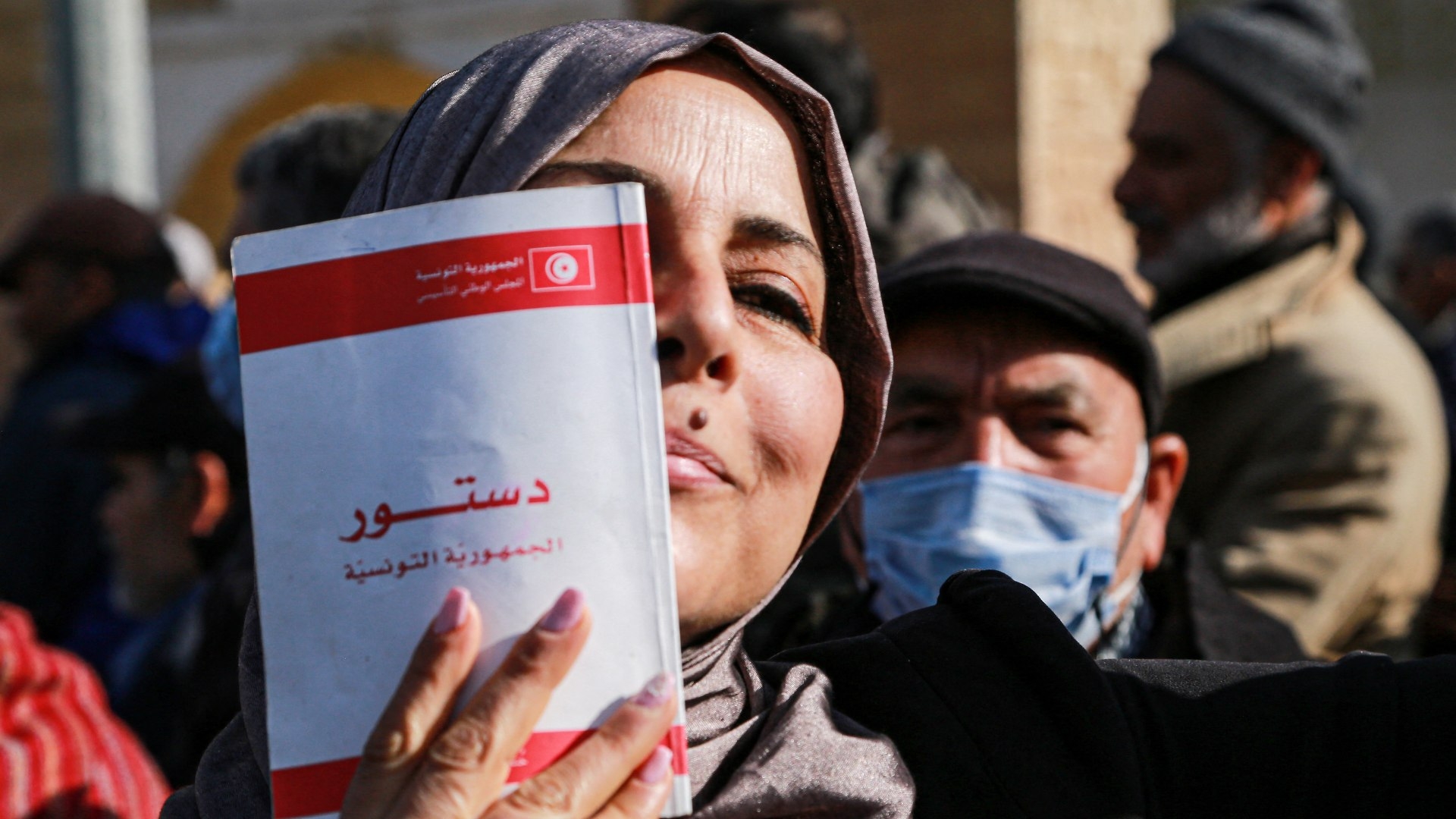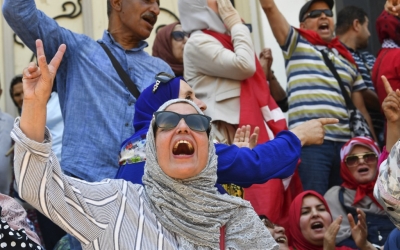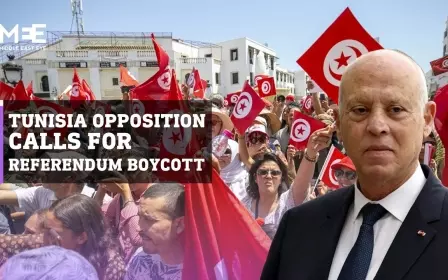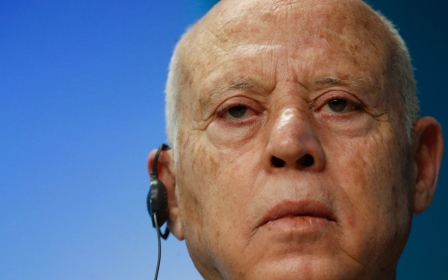US lawmakers urge Biden to stop 'complete democratic breakdown' in Tunisia

A group of House lawmakers have urged the Biden administration to use the "full range of tools at its disposal" to pressure Tunisia's president to stop further autocratic actions ahead of a vote on the new draft constitution next week.
In a bipartisan letter from the House Democracy Partnership to Secretary of State Antony Blinken on Friday, the members of Congress said that while Tunisian President Kais Saied has initiated a "series of sweeping authoritarian decrees" in the past year, increased diplomatic pressure from the US could help with returning the country to a path of democracy.
"As the anniversary approaches of the presidential decrees and actions that began to dismantle democracy in Tunisia, we urge renewed attention and action to address the plight of the only genuine parliamentary democracy to emerge from the Arab Spring," read the letter, seen by Middle East Eye.
'We urge renewed attention and action to address the plight of the only genuine parliamentary democracy to emerge from the Arab Spring'
- House Democracy Partnership
"We believe the situation is still relatively tractable in terms of what diplomatic, economic, and political pressures might achieve, and we urge you to use the full range of tools at your disposal."
The letter is the latest congressional effort urging action on Tunisia's democratic backsliding from the US administration, which has been largely filled with ambiguity.
Saied has ruled by decree since last summer, when he brushed aside parliament and the democratic 2014 constitution in a power grab his opponents labelled a coup, moving towards "one-man rule" and vowing to remake the political system.
In addition to freezing parliament, he has enacted several controversial measures including shutting down the country's independent anti-corruption body and sidelining the national election authority.
In early February, he dissolved the Supreme Judicial Council and granted himself control over the selection and promotion of judges.
'Give the diplomatic weight it deserves'
Last month, the Tunisian leader introduced a new draft constitution that would create a presidential system of government - a departure from the mixed presidential-parliamentary system enshrined in the 2014 constitution.
The draft constitution published in the official gazette would bring most political power under Saied, giving him ultimate authority over the government and judiciary.
Saied would be allowed to present draft laws, have sole responsibility for proposing treaties and drafting state budgets, appoint or remove government ministers and appoint judges.
On Monday, Tunisians will vote on the new draft constitution, in a pivotal moment for the country. For the country's opposition, it poses a difficult challenge of whether it should participate by voting "no", or whether it should boycott the vote altogether.
In their letter, the lawmakers are calling on the Biden administration to shift its stance from "encouraging inclusion of civil society, political parties, and unions, which Saied continues to give a facade of inclusion, to openly discussing and highlighting autocratic tactics and exclusionary actions by the Tunisian Government".
It also called on the government to ensure that any US foreign assistance to the country supports pro-democracy entities there.
The members of Congress said that while the situation in Tunisia is dire, US pressure could help to return the country to a democratic path.
"We strongly believe the moment is opportune to avoid a complete democratic breakdown if the situation is given the diplomatic weight it deserves," the letter read.
"We therefore urge the Administration to put full diplomatic weight on preventing further autocratic action by President Saied, through cooperation and partnership with the EU, Tunisian civil society, and youth organizations."
Middle East Eye propose une couverture et une analyse indépendantes et incomparables du Moyen-Orient, de l’Afrique du Nord et d’autres régions du monde. Pour en savoir plus sur la reprise de ce contenu et les frais qui s’appliquent, veuillez remplir ce formulaire [en anglais]. Pour en savoir plus sur MEE, cliquez ici [en anglais].





